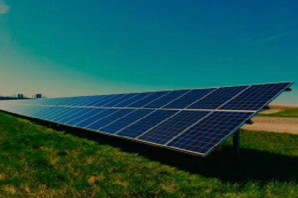Solar panels can provide significant
advantages to many businesses since such sectors use high volumes of
electricity to keep their operation running. However, since it is considered an
accessory to the establishment and essential to the operation of the business,
it needs to be regulated by local authorities to ensure building safety and tax
purposes. Each region has its own unique regulations on solar panel
installation. For instance, the photovoltaic roof tiles south africa have sets of guidelines for businesses to follow as well to
suit the city's standards. In this article, you will be learning these policies
in order for you to determine whether you are in accordance with regional
standards.

Public Installations
A public installation of solar
panels is suitable for areas where there are several businesses residing in the
area. It is advantageous because it is more cost-effective as the initial and
maintenance costs are shared by such businesses. If the solar panel
installation is benefited by several establishments, it is important to arrange
a general meeting for the proprietorships to cover the solar panel
arrangements. In order for the meeting to reach a quorum or resolution, it
needs at least 75% of the business owners present in the gathering.
Furthermore, in the event that the primary owners are unavailable, at least 33%
of them have proxies to represent the 75% of business owners required in order
for the meeting to be valid and binding as soon as it reaches a conclusion.
The public or shared installation of
solar panels can be arranged by the establishments involved. However, it has to
be amended and comply with local regulations if it is deemed to affect the
welfare of a residential area near the businesses.
Private Installations
The framework for private
installation of solar panels is relatively straightforward and it only requires
to be mentioned in the record books of the incorporation. You can only provide
information about the solar panels upon the request of the local authorities or
if a memorandum has been distributed requiring them to do so. Very little
requirement is needed for the said equipment as it is low-risk yet
significantly beneficial to the business and nearby areas as well since it
consumes more organic power and less electricity from power plants. Regardless
of the size, businesses can install as many solar panels as the establishments
need which depends on their area measurement.
Subdivision or Homeowner's
Association
Installing solar panels in
subdivisions managed by a homeowner's associate is a little more delicate since
it involves a large group of families instead of only a few incorporators or
proprietors. If you are a co-owner of the association and the incorporation is
early in its inception, then it is important to lay down the structural plan
for the solar panels in the memorandum of incorporation. It is an important
aspect to include them in the certificate to disclose the sources of power for
the area, and the incorporators may need to amend the memorandum if they are
not stated. Similar to the two of the ones mentioned earlier, the disclosure of
the solar panel installation is not necessary unless the local government has
required you to submit any details about the equipment.

Conclusion
Solar panel installation in
businesses in the area of greater South Africa is not as steep compared to
other regions because they are generally safe and even significantly beneficial
because they are cost-effective and allow them to save cash outflow from
electricity bills. As discussed earlier, private establishments or estates are
the only sectors that can freely install solar panels based on the agreed
numbers by the incorporators, while shared solar panels need to go through a
quorum by the contributing parties. Lastly, in the homeowner's association
setting, a solicitation and the majority of the people residing in the area
have to come into an accord.
